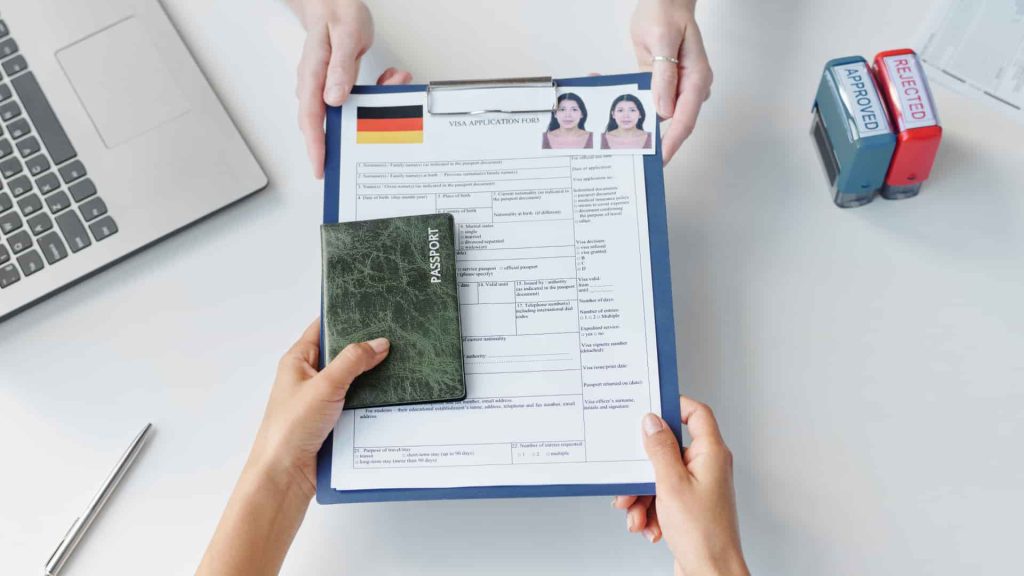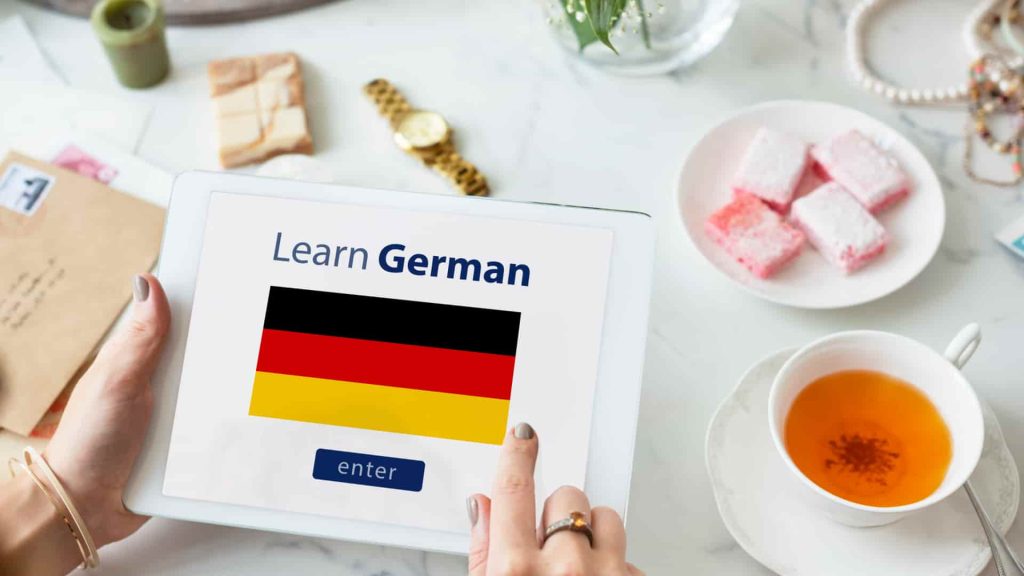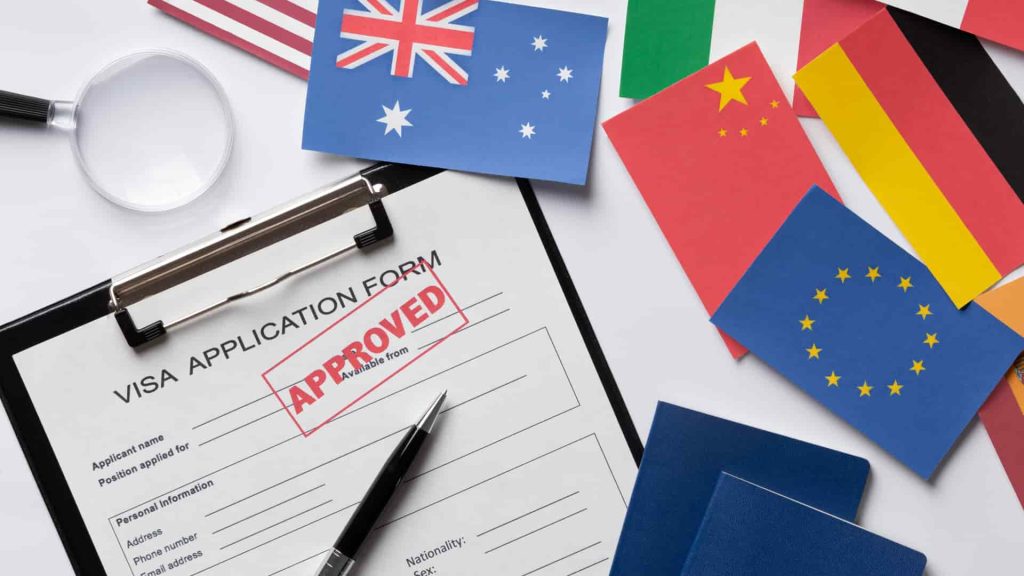
Every year, Germany rolls out the welcome mat to thousands of skilled professionals and this might just be your turn. In 2022 alone, a whopping 187,000 residence permits were issued for employment purposes—a clear sign that Germany values international talent.
But who’s getting these golden tickets? From the vibrant markets of India to the historic landscapes of Russia, and the technological hubs of China, a diverse mix of nationalities are finding their professional home in Germany. India, China, Russia, Ukraine, and Turkey are leading the pack, showing that Germany’s work culture is as international as it gets.
Are you a whiz kid in the tech world, a mastermind engineer, or perhaps a lifesaving doctor? Approximately 38% of work visas are granted to individuals like you with recognized qualifications.
Not in these fields? Worry not! Another 35% of visas go to other qualified employees, including the industrious blue-collar workers and savvy technicians.
So, are you ready to grab your lederhosen or dirndl and dive into the German work culture?
How Exactly Does the Application for German Work Visa Work?
There are several steps in the German work visa application process including gathering and drafting required documents, submitting them within the deadline and finally attending the interview. The process may seem rather daunting and quite a hassle, so we have tried to simplify the process into bite-sized chunks for you.
Make sure to read: Understanding the Nuances of Student Accommodation in Berlin

#1 Understanding the German Work Visa Types
Germany offers a variety of work visas tailored to different professional needs and qualifications. Understanding these is key to a successful application:
- General Employment Visa: For individuals with a job offer in Germany, suitable for various roles but requires proof of qualification and a job offer matching the applicant’s skills.
- Specialist Professional Visa: Aimed at highly skilled professionals with specialized expertise. Applicants typically have advanced degrees and significant experience in fields like IT, engineering, or science.
- EU Blue Card: A preferred option for highly-qualified non-EU nationals intending to live and work in Germany. Requires a higher education degree and a job offer with a minimum salary threshold.
- Freelancer Visa: For those planning to work independently or start a business in Germany. Applicants must prove they have the necessary funds and a viable business plan.
- IT Specialist Visa: Specifically designed for experts in the information technology sector who may not have a formal university degree but possess significant professional experience and skills.
Each type of visa has specific criteria and benefits, so it’s crucial to identify the one that best matches your qualifications and job situation. Whether you’re a seasoned professional, a budding entrepreneur, or a highly specialized expert, there’s a pathway for you to work in Germany.
| Visa Type | Criteria |
| Skilled Workers with University Degree (Section 18b) | – Recognized university degree – Job offer in qualified position – Minimum salary based on profession |
| Skilled Workers with Vocational Training (Section 18a) | – Recognized vocational qualification – Job offer in skilled position – Minimum salary based on profession |
| EU Blue Card (Section 18g) | – University degree – Job offer in qualified position with salary at least 1.5 times the average – Recognized professional qualification |
| Practical Professional Knowledge (Section 19c) | – 5 years+ relevant professional experience – Lack of suitable qualified German workers – Potential for economic benefit |
| Job Seeker | – Minimum 5 years professional experience – Recognized qualifications – Financial resources – Proof of job search efforts |
| Intra-Corporate Transfer (ICT Card) | – Employment within same multinational company for at least 1 year, – Transfer to Germany for specific project or managerial role |
| Freelancer | – Relevant qualifications – Proven freelance experience – Ability to secure freelance contracts in Germany |
| Working Holiday | – Citizenship from eligible country – Age 18-30 – Sufficient financial resources |
Also read: Working in Germany: Top 5 Insider Secrets of Europe’s Silicon Valley

#2 Eligibility Criteria for a German Work Visa
There are a few documents and criteria you need to meet before you begin your application process for a German work visa. Here’s what you need to be aware of:
- Valid Passport: Must be valid for at least 6 months beyond the visa duration.
- Qualification: Depending on the visa type, you may need a vocational qualification, university degree, or specific professional experience.
- Job Offer: Proof of a job offer or contract in Germany aligned with your qualifications (not required for freelancer visas).
- Minimum Salary: Certain visas, like the EU Blue Card, require a minimum salary level.
- Health Insurance: Proof of travel or health insurance covering your stay until you get a permanent one in Germany.
- No Threat to Public Policy: Certification that you pose no threat to German public policy, security, or health.
- Language Proficiency: Some categories may require a certain level of German language proficiency, although not universally mandatory.

Comprehensive Checklist of Documents Needed for the Application Process
Once you ensure you meet the eligibility criteria, gather the following documents:
- Passport: Valid and signed, with at least two blank pages.
- Visa Application Form: Completed and signed.
- Job Offer or Contract: Documented proof of your employment in Germany.
- Professional Qualification Proof: Certificates or diplomas.
- CV: Outlining your education and employment history.
- Proof of Accommodation: Where you will live in Germany.
- Health Insurance: Valid in Germany for the duration of your stay or until you secure a job.
- Biometric Photos: Recent and as per visa photo requirements.
- Cover Letter: Explaining the purpose of your stay, your career plans, and the itinerary.
- Financial Proof: Bank statements or a letter from your sponsor to prove you can support yourself.
- No Objection Certificate (NOC): From your current employer or educational institution.
- Background Checks: If required, police clearance or similar documentation.
We think you’ll love this: Struggling to Make a Budget for Your Move to Germany? Here’s Our Detailed 7-Step Plan
#3 The Ultimate Step-by-Step Guide to the Application Process
Before applying for your German work, a sound understanding of the process as well as careful preparation and attention to detail is absolutely necessary.
- Determine Visa Type: Based on your job and qualifications, determine the most appropriate work visa category.
- Document Collection: Gather all necessary documents as per the checklist provided for your specific visa type. Ensure all papers are up-to-date and accurately filled out.
- Schedule an Appointment: Book an appointment with the German Embassy or Consulate in your country. The appointment should be as close as possible to your intended departure but allow enough time for the processing.
- Application Form: Complete the application form for the German work visa. Double-check all entries for accuracy.
- Attend the Appointment: Go to your scheduled appointment, bringing all your documents, the application form, and any required fees.
- Submit Application: Hand in your application and documents during the appointment. You may also need to provide biometric data.
- Pay Fees: Pay the application fee, which varies depending on the visa type and duration.
- Wait for Processing: The processing time can vary; during this period, the embassy might contact you for additional documents or information.
- Collect Visa: Once approved, you’ll be notified to collect your passport with the visa.

How to Prepare For Your Application Interview?
- Understand Your Documents: Be familiar with every detail in your application and supporting documents. You should be able to discuss your job role, qualifications, and future plans in Germany confidently.
- Practice Common Questions: Anticipate questions related to your professional background, the purpose of your stay, and how you plan to adapt to life in Germany.
- Dress Formally: First impressions count. Dress professionally as you would for a job interview.
- Be Punctual: Arrive early for your interview to deal with any last-minute nerves and show that you are organized and serious about your application.
Don’t forget to read: Thriving as a Remote Worker in Germany: 5 Essential Tips for Maximizing Your Potential
#4 Common Mistakes and Pitfalls to Avoid When Applying for a German Work Visa
When applying for a German work visa, some applicants fall into avoidable traps that can delay or derail their plans. One common mistake is overlooking the detail in documentation – every form and paper matters, and missing or incorrect information can cause significant delays.
Applicants often underestimate the time it takes to gather all necessary documents, leading to rushed submissions and errors. It’s also crucial to ensure that all documents are up-to-date and correctly translated if they’re not in German or English.

Misunderstanding the specific type of visa needed for individual circumstances is another error; the requirements and privileges vary significantly among visa types, so thorough research is vital.
Lastly, presenting a poorly prepared case at the visa interview, including vague answers or a lack of understanding of one’s own documents, can result in a negative impression, harming the application’s success.
Ensuring a Smoother Application Process
To avoid these pitfalls and ensure a smoother application process, consider the following:
- Start Early: Begin collecting documents and information well in advance of the deadline.
- Double-Check Everything: Verify all details in your application and supporting documents for accuracy.
- Follow Instructions Precisely: Adhere strictly to the guidelines provided by the German Embassy or Consulate.
- Seek Clarification: If in doubt, ask questions or seek professional advice to avoid misunderstandings.
- Prepare for the Interview: Practice answering potential questions and thoroughly understand your application and intentions in Germany.
Your recommended post for the week: Top 7 Strategies to Spruce Up Your Work Space
Finding Your Gateway to an Easy German Work Visa Application Process
Remember that while the journey may seem daunting at first, with the right preparation and understanding, it can be a straightforward path to a rewarding professional future in Germany.
From understanding the various types of visas available to gathering the necessary documents, scheduling your appointment, and preparing for the all-important visa interview, each step is an integral part of your journey towards working in Germany.

Avoid common pitfalls by planning ahead, paying close attention to the details of your application, and staying informed about the latest immigration laws and policies.
Whether you dream of contributing to Germany’s thriving economy, seeking new professional challenges, or simply longing for a change of scenery, a German work visa is your gateway to new opportunities.




